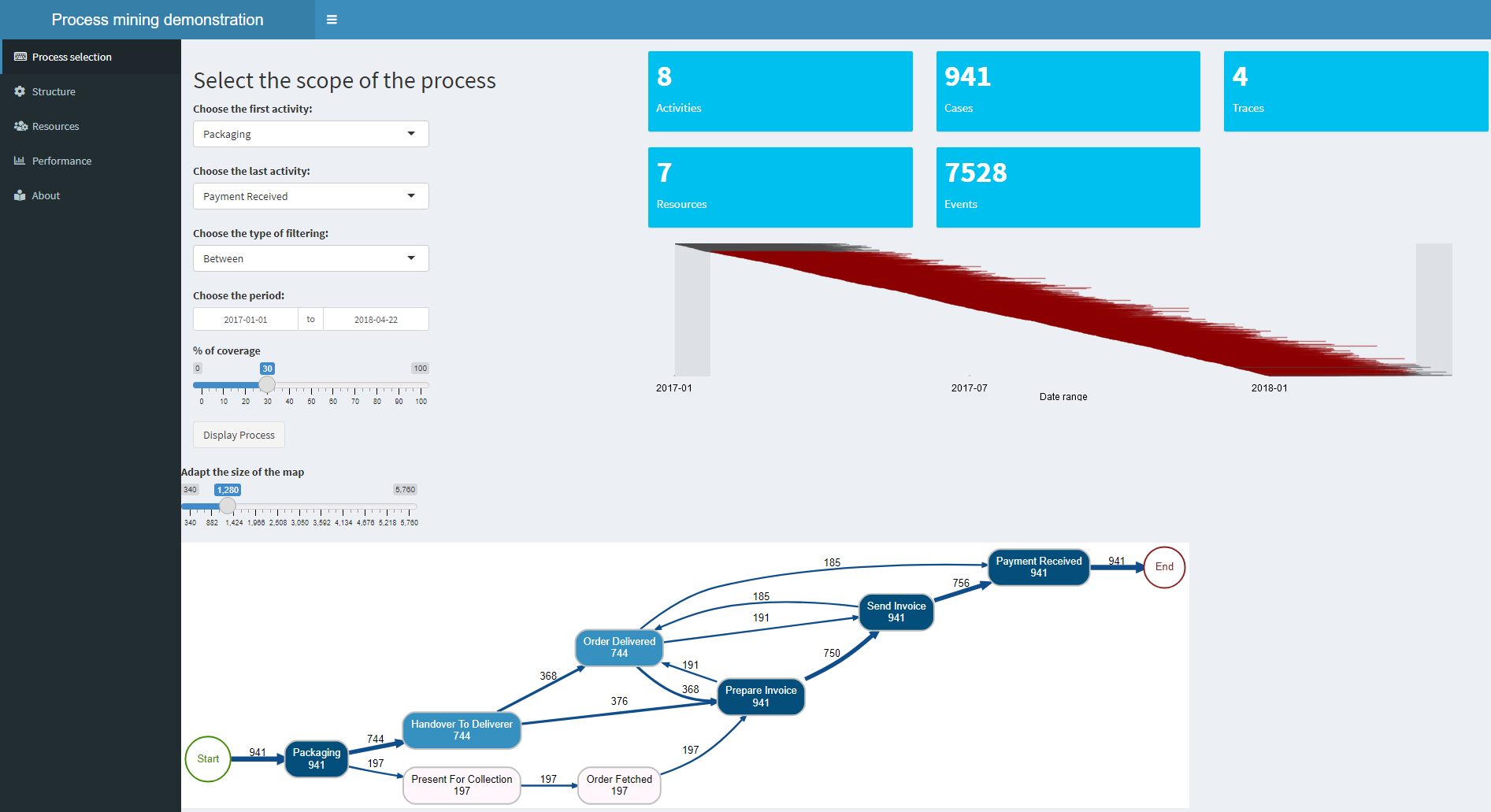Process mining demonstration
How do you improve your business process?
Are you a Finance or Operations professional at a small or medium sized firm facing challenges in improving your efficiency and performance?
What if you could:
- Go beyond your and KPIs and gain insight on your entire operation?
- Target your improvement where it adds the most value to your organisation?
- Implement alert-based monitoring and compliance?
- Automate some of your manual or bottleneck activities?
- Save some cost?
These are some of the outcomes I deliver when implementing process mining.
So what is process mining really?
Process mining is a set of techniques that uses data from your information systems to provide insight on how your processes are executed and help you to take an informed action to improve and measure ongoing performance.
The common pitfalls of incremental process improvement
Many companies tend to lead functional improvement projects, without studying the impact on the whole process. This leads to siloed applications, that may initially behave like an improvement for one function or department, but usually ends up in a bottle neck that slows the fully integrated process.
The decisions to carry out these projects is usually backed by a data analysis based on BI, but typically this addresses what is broken, without assessing the solution across the range of the end-to-end process.
On the other end, some companies study their existing processes, with a traditional approach, based on interviews, structured walk throughs, or observation. The challenge here is that these methods introduce subjectivity and can give too much weight to a few extreme cases. These approaches can result in time consuming and costly projects with consulting firms which may still miss the underlying causes and fail to make the best decisions to act upon.
The clarity you’ve been looking for
Process mining brings data science techniques to the study of end-to-end processes, with the aim to answer questions on the current execution and performance of the process, considering every dimension together and their interaction (cases, activities, resources, time, cost).
Process mining starts with event data, which can be extracted for each software used in the process. Today, every company uses an information system to support their operations, these systems keep logs of the transactions, which are the fuel for process mining. Therefore, there is no reason anymore for not measuring the processes, their current structure, compliance, performance and make the best decisions to improve them, be warned and take immediate action to correct an instance that can go off track.
There are different steps to conduct a process mining project:
- consider the scope of the process to study,
- ask the questions to answer,
- find and extracting the data,
- recreate and analysing the process, which is an iterative process, based on the insights and refining the questions.
- add different perspectives, data (cost, cluster of product, customer etc..)
- improve the support of your operation.
Try it yourself
If you’re unfamiliar with process mining and what it can do for you, I built an application, with sample data from an order to cash process, so that you can perform a walkthrough manipulate the reports and visualise how this can benefit your company.
Click on the image to go to the application (open in a new tab as it is hosted on an different server)
The application provides an example of different visualisations to track and continuously analyse your process. I implement this tool directly with your data, tailored to your specific processes and design to provide the insight and points of interest across the full range of your processes.
If you want to know more and discuss how your organisation can benefit from it, please get in touch through LinkedIn or Twitter see About page!
